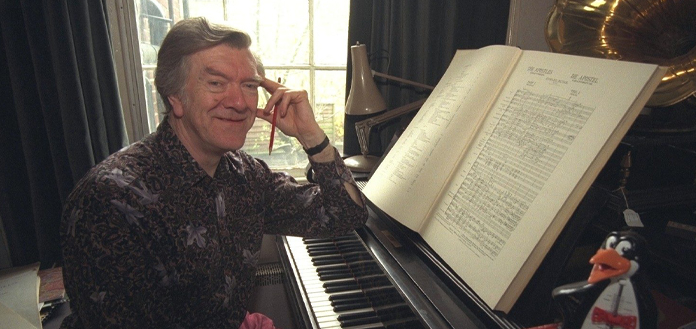

|
Anthony Edward Payne (2 August 1936 – 30 April 2021) was an English composer, music critic and musicologist. He is best known for his acclaimed completion of Edward Elgar's Third Symphony, which subsequently gained wide acceptance into Elgar's oeuvre. His own works include representatives of most traditional genres, and although he made significant contributions to the orchestral and choral repertoire, he is particularly noted for his chamber music. Many of these chamber works were written for his wife, the soprano Jane Manning, and the new music ensemble Jane's Minstrels, which he founded with Manning in 1988. Initially an unrelenting proponent of modernist music, by the 1980s his compositions had embraced aspects of the late romanticism of England, described by his colleague Susan Bradshaw as "modernized nostalgia". His mature style is thus characterized by a highly individualized combination of modernism and English romanticism, as well as numerology, wide spaced harmonies, specific intervallic characterizations, and restrained melodies. Born in London, Payne studied music at Dulwich College and Durham
University. Though a composer since childhood, his professional career
began around 1969 with his first major work, the Phoenix Mass,
which was firmly rooted in the modernist tradition. He continued to write
choral and vocal works, almost exclusively to English poets, particularly
Hardy, Tennyson and Thomas. From his 1981 orchestral work A Day in the
Life of a Mayfly on, he synthesized aspects of English romanticism from
his primary influences, Elgar, Delius and Vaughan Williams. Two orchestral
commissions for The Proms, The Spirit's Harvest (1985) and
Time's Arrow (1990) were well received.
Payne held academic posts at various institutions throughout his career, including Mills College, the London College of Music, the Sydney Conservatorium of Music and the University of Western Australia. Despite regular commissions from a variety of English ensembles, Payne was forced to supplement his income with writings. A renowned critic, he wrote for The Daily Telegraph, The Independent and Country Life. Other writings include publications on a variety of musical topics, notably a study of Schoenberg (1968), and numerous works on the music of Frank Bridge, to whom he was particularly devoted. He died in April 2021, a month after the death of his wife. |
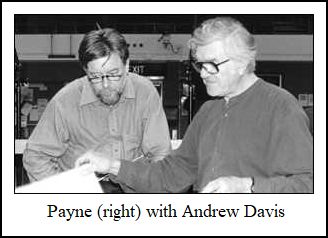
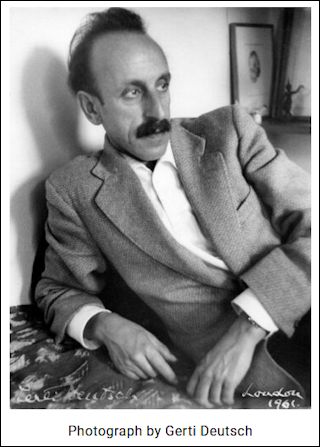
Hans (Heinrich) Keller (11 March 1919 – 6 November 1985) was an Austrian-born British musician and writer, who made significant contributions to musicology and music criticism, as well as being a commentator on such disparate fields as psychoanalysis and football. In the late 1950s, he invented the method of "wordless functional analysis", in which a musical composition is analysed in musical sound alone, without any words being heard or read. He worked full-time for the BBC between 1959 and 1979. As a boy, Keller was taught by the same Oskar Adler who had, decades earlier, been Arnold Schoenberg's boyhood friend and first teacher. In 1938 he fled Vienna and joined his extended family in London. He became a prominent and influential figure in the UK's musical and music-critical life. Initially active as a violinist and violist, he soon found his niche as a highly prolific and provocative writer on music, as well as an influential teacher, lecturer, broadcaster and coach. As a man prominent in the world of 'contemporary music' (even working for several years as the BBC's "Chief Assistant, New Music"), Keller had close personal and professional ties with many composers, and was frequently the dedicatee of new compositions. These included the String Quartet #3 of Britten, and the Symphony #7 of Robert Simpson. |
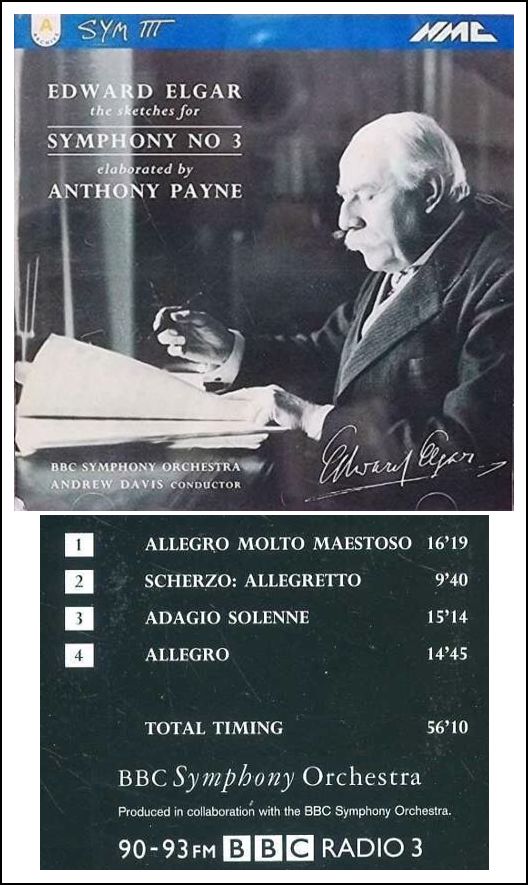 BD: Do you purposely write in musical
surprises?
BD: Do you purposely write in musical
surprises?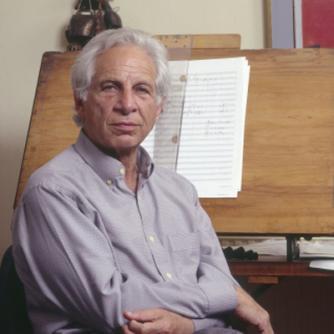 Alexander Goehr was born on 10 August 1932 in Berlin, and his
family moved to Britain when he was only a few months old. Alexander
came from an extremely musical family: his mother Laelia was a classically
trained pianist, and his father, Walter Goehr, was a Schoenberg pupil
and pioneering conductor of Schoenberg, Messiaen (he conducted the
UK premiere of the Turangalîla Symphony in 1953) and
Monteverdi. As a child, Alexander grew up in a household permanently populated
by composers.
Alexander Goehr was born on 10 August 1932 in Berlin, and his
family moved to Britain when he was only a few months old. Alexander
came from an extremely musical family: his mother Laelia was a classically
trained pianist, and his father, Walter Goehr, was a Schoenberg pupil
and pioneering conductor of Schoenberg, Messiaen (he conducted the
UK premiere of the Turangalîla Symphony in 1953) and
Monteverdi. As a child, Alexander grew up in a household permanently populated
by composers. In his early twenties he emerged as a central figure in the Manchester School of post-war British composers. In 1955–56 he joined Olivier Messiaen's masterclass in Paris. Although in the early '60s Goehr was considered a leader of the avant-garde, his oblique attitude to modernism—and to any movement or school whatsoever—soon became evident. In a sequence of works including the Piano Trio (1966), the opera Arden Must Die (1966), the music-theatre piece Triptych (1968–70), the orchestral Metamorphosis/Dance (1974), and the String Quartet No. 3 (1975–76), Goehr's personal voice was revealed, arising from a highly individual use of the serial method and a fusion of elements from his double heritage of Schoenberg and Messiaen. Since the luminous 'white-note' Psalm IV setting of 1976, Goehr has urged a return to more traditional ways of composing, using familiar materials as objects of musical speculation, in contrast to the technological priorities of much present-day musical research. The year of Goehr's appointment at Cambridge (1976) coincided with a turning point in his output. The simple, bright modal sonority of the Psalm IV marked a final departure from post-war serialism, and a commitment to a more transparent soundworld. Goehr found a way of controlling harmonic pace by fusing his own modal harmonic idiom with the long-abandoned practice of figured bass, thus achieving a highly idiosyncratic fusion of past and present. The output of the ensuing twenty years testified to Goehr's desire to use this new idiom to explore ideas and genres that had already become constant features of his work, such as the exploration of symphonic form, yet these years' output is disseminated most notably with a great number of ambitious vocal scores. |
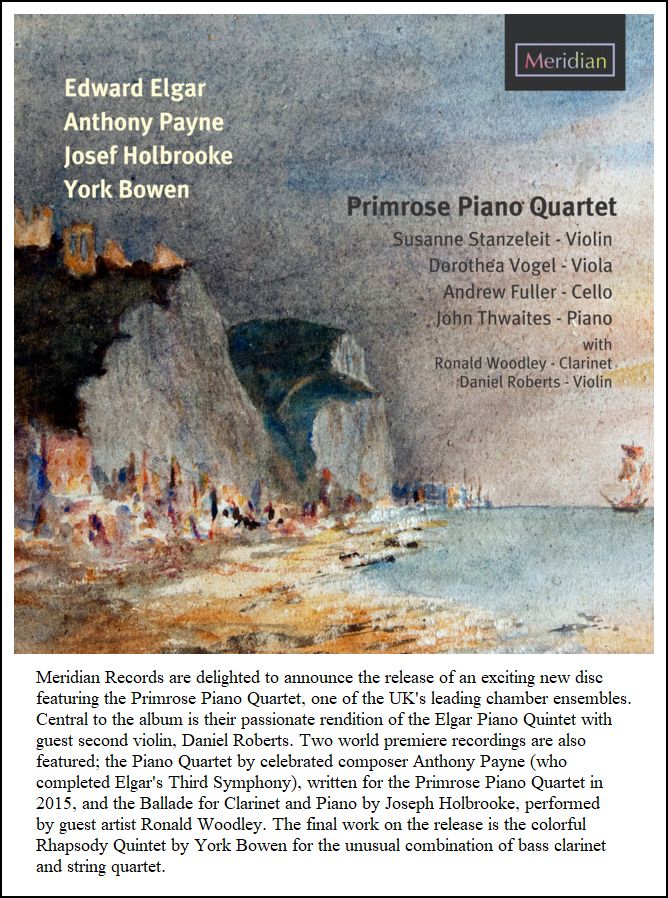 BD: Perhaps you should turn this all
on its head, and create your own large orchestral work completely your
own, without any thought to Elgar, but call it the Elgar Fourth.
BD: Perhaps you should turn this all
on its head, and create your own large orchestral work completely your
own, without any thought to Elgar, but call it the Elgar Fourth.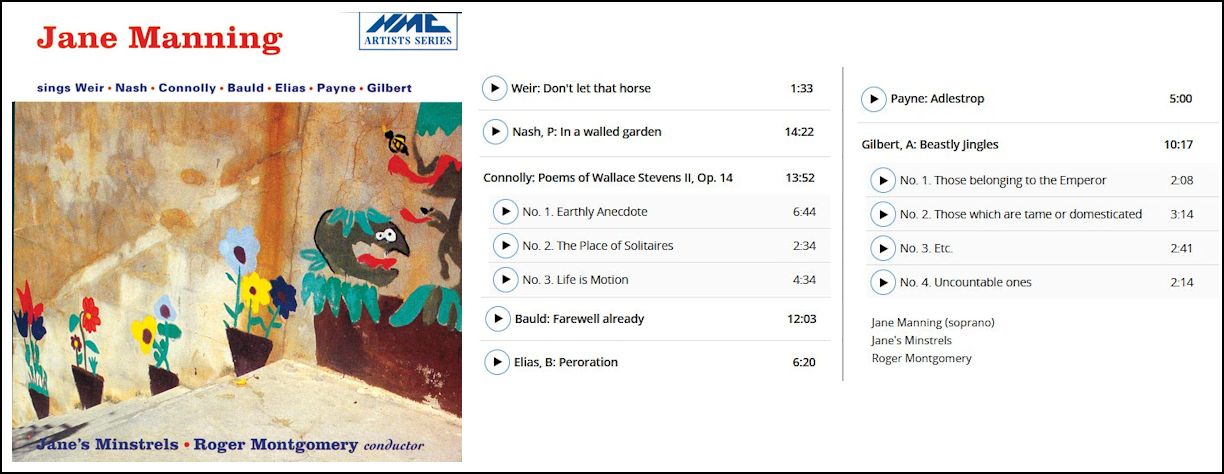
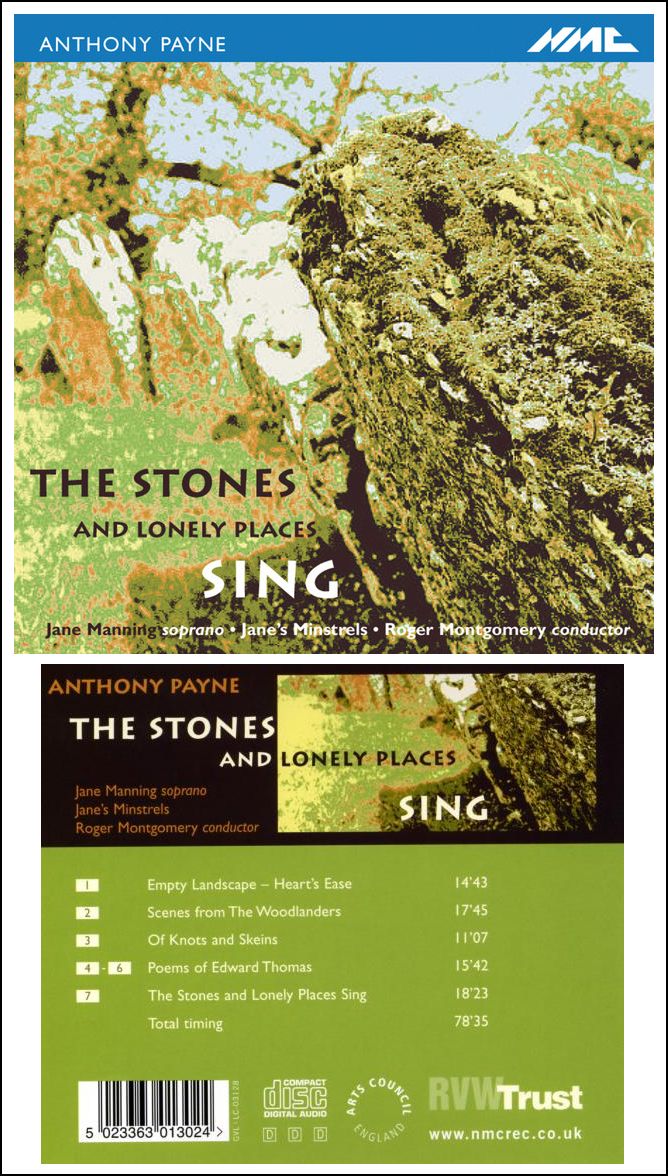 Payne: When I’m writing chamber music,
I’m very much considering the players, and thinking as a colloquy between
the players. I’m listening to it myself, overhearing it, as are
my friends in the audience. That’s the way I think of it.
Writing an orchestral work, it may be that one is getting a little vulgar,
but one is consciously standing up one’s soap box. Rhetoric is employed,
and you’re going out to a huge audience. I always think there’s something
slightly demagogic about that when it boils down to it, and I’m afraid
that one loves being like that. [Much laughter] I like that,
and I just adore writing orchestral music. You might not think it
from what I’ve just said about chamber music, but I still think the modern
symphony orchestra is a fantastic institution. I know a lot of my
contemporaries think of the symphony orchestra as dying, or at best a museum
for stuff in the past, but I think it is this institution that’s grown.
Most big cities have one, and you should succor it and give it works
to play.
Payne: When I’m writing chamber music,
I’m very much considering the players, and thinking as a colloquy between
the players. I’m listening to it myself, overhearing it, as are
my friends in the audience. That’s the way I think of it.
Writing an orchestral work, it may be that one is getting a little vulgar,
but one is consciously standing up one’s soap box. Rhetoric is employed,
and you’re going out to a huge audience. I always think there’s something
slightly demagogic about that when it boils down to it, and I’m afraid
that one loves being like that. [Much laughter] I like that,
and I just adore writing orchestral music. You might not think it
from what I’ve just said about chamber music, but I still think the modern
symphony orchestra is a fantastic institution. I know a lot of my
contemporaries think of the symphony orchestra as dying, or at best a museum
for stuff in the past, but I think it is this institution that’s grown.
Most big cities have one, and you should succor it and give it works
to play.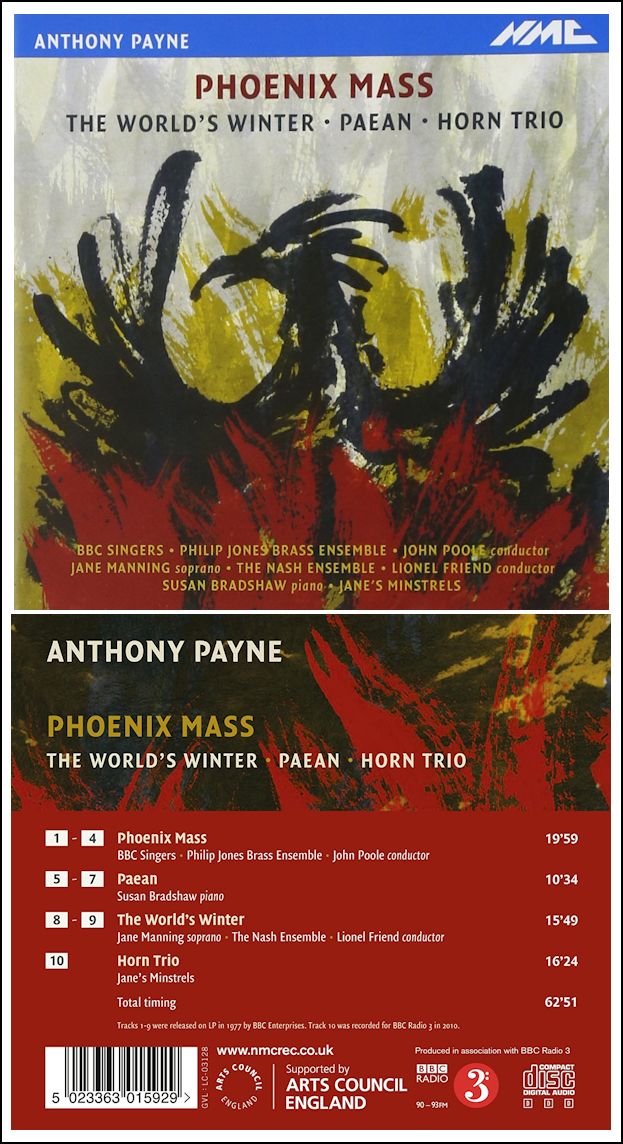 BD: Do you trust the performers a lot,
or do you litter your scores with lots of instructions?
BD: Do you trust the performers a lot,
or do you litter your scores with lots of instructions?| The Five Pieces for Orchestra (Fünf
Orchesterstücke), Op. 16, were composed by Arnold Schoenberg
in 1909, and first performed in London in 1912. They further develop
the notion of "total chromaticism" that Schoenberg introduced in his Three
Piano Pieces, Op. 11 (composed earlier that year), and were composed
during a time of intense personal and artistic crisis for the composer. The work had its world premiere in London at a Promenade Concert
on 3 September 1912, conducted by Sir Henry Wood, a constant champion
of new music. During rehearsals for Schoenberg's suite he urged his reluctant
players, "Stick to it, gentlemen! This is nothing to what you'll have
to play in 25 years' time" The work was not well received. The critic
Ernest Newman, who was receptive to Schoenberg's music, wrote after the
performance, "It is not often that an English audience hisses the music
it does not like, but a good third of the people at Queen's Hall last
Tuesday permitted themselves that luxury after the performance of the
Five Orchestral Pieces of Schoenberg. Another third of the
audience was only not hissing because it was laughing, and the remaining
third seemed too puzzled either to laugh or to hiss; so that on the whole
it does not look as if Schoenberg has so far made many friends in London." According to Robert
Erickson, "Harmonic and melodic motion is curtailed, in order to
focus attention on timbral and textural elements." Schoenberg explains
in a note added to the 1949 revision of the score, "The conductor need
not try to polish sounds which seem unbalanced, but watch that every instrumentalist
plays accurately the prescribed dynamic, according to the nature of his
instrument. There are no motives in this piece which have to be brought
to the fore". Wood invited Schoenberg to conduct London's second performance of
the work in 1914. The composer's only British pupil, Edward Clark, conveyed
the invitation and on 17 January 1914 Schoenberg conducted the work at
the Queen's Hall. The laughter and hissing of the first performance were
not repeated, and the work was heard in silence and politely applauded.
The composer was delighted with the performance, and congratulated Wood
and the orchestra warmly: "I must say it was the first time since Gustav
Mahler that I heard such music played again as a musician of culture demands."
This concert may have been attended by Gustav Holst, who obtained a copy
of the score, the only Schoenberg score he ever owned. Echoes of the work
appear in The Planets (originally titled Seven Pieces for Large
Orchestra), and in the opening of his ballet The Lure (1921),
which closely resembles the third of Schoenberg's Five Pieces. The work exists in two different scorings: the original 1909 version
for a very large orchestra, and the revised version of 1949 (published
posthumously in 1952), which reduces the size of the orchestra to more-or-less
normal proportions, giving up the contrabass clarinet, as well as the
four-fold scoring of the other woodwinds and two of the six horns. |
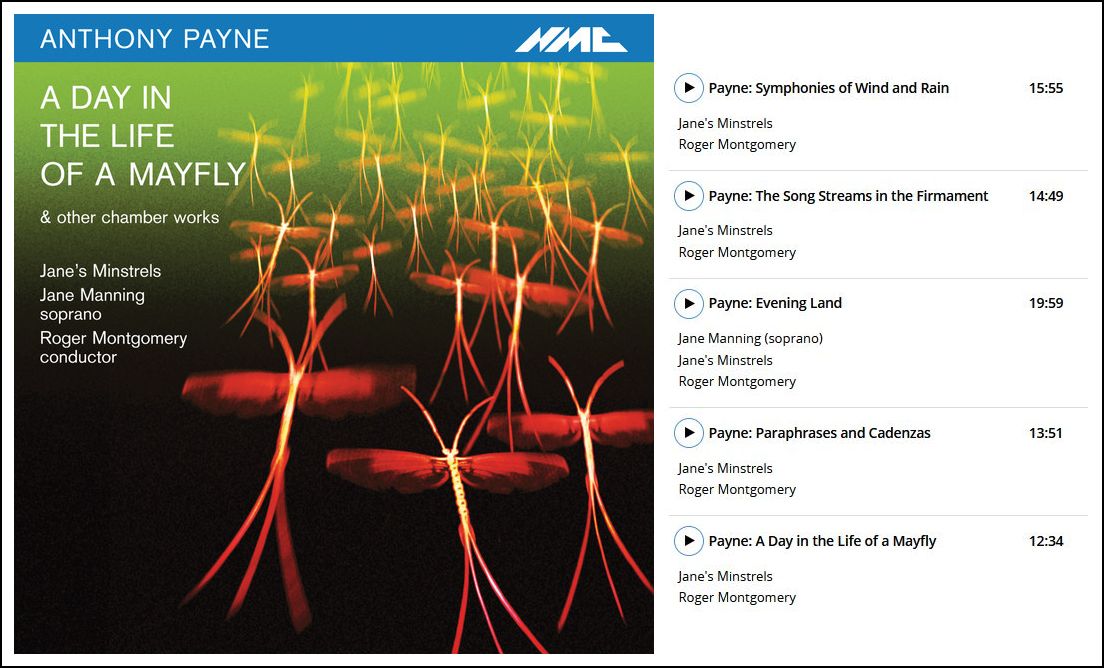
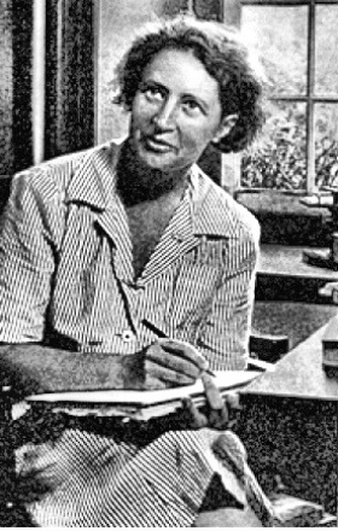
Susanne Katherina Langer (née Knauth; December 20, 1895 – July 17, 1985) was an American philosopher, writer, and educator and was well known for her theories on the influences of art on the mind. She was one of the first women in American history to achieve an academic career in philosophy and the first woman to be popularly and professionally recognized as an American philosopher. Langer is best known for her 1942 book Philosophy in a New Key. Though she was American born, Langer's primary language was German, as it was strictly spoken in her household throughout her youth, and her German accent remained her entire life. She was exposed thoroughly to creativity and art, most specifically through music. She was taught to play the cello and the piano, and she continued with the cello for the remainder of her life. Langer's philosophy explored the continuous process of meaning-making in the human mind through the power of "seeing" one thing in terms of another. Langer's first major work is entitled, Philosophy in a New Key. It put forth an idea that has become commonplace today: that there is a basic and pervasive human need to symbolize, to invent meanings, and to invest meanings in one's world. Langer's distinction between discursive versus presentational symbols is one of her better-known concepts. Discursive symbolization arranges elements (not necessarily words) with stable and context invariant meanings into a new meaning. Presentation symbolization operates independently of elements with fixed and stable meanings. The presentation cannot be comprehended by progressively building up an understanding of its parts in isolation. It must be understood as a whole. For example, an element used in one painting may be used to articulate an entirely different meaning in another. The same principle applies to a note in a musical arrangement. Such elements independently have no fixed meaning except in the context of their entire presentation. |
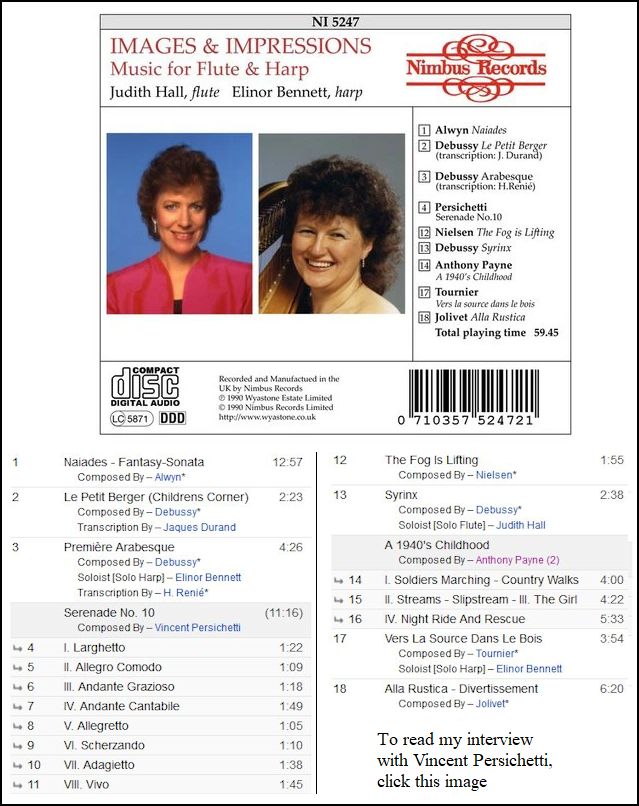 Payne: A couple of ones which I’m not all that proud to
speak of [both laugh] because they weren’t for cinema movies. They
were for television movies. They were for Hammer Horror Films,
which was the famous English studio that produced horror movies in the
’50s and ’60s. I don’t
think they have produced any movies for the cinema in recent years, but
they brought out twelve television films in the ’80s,
each one lasting an hour and a quarter. They were not with the best
of plots, but they were onto a good thing because they asked concert composers
to write the music. I think they thought they could get away with
lower fees with them, to be quite honest. But it was a very, very
interesting experience. I did one about a haunted church, and one
about a haunted tennis court, [laughs] and you may well ask how you differentiate
between those two milieux with the music! [Much laughter] But
it was great fun.
Payne: A couple of ones which I’m not all that proud to
speak of [both laugh] because they weren’t for cinema movies. They
were for television movies. They were for Hammer Horror Films,
which was the famous English studio that produced horror movies in the
’50s and ’60s. I don’t
think they have produced any movies for the cinema in recent years, but
they brought out twelve television films in the ’80s,
each one lasting an hour and a quarter. They were not with the best
of plots, but they were onto a good thing because they asked concert composers
to write the music. I think they thought they could get away with
lower fees with them, to be quite honest. But it was a very, very
interesting experience. I did one about a haunted church, and one
about a haunted tennis court, [laughs] and you may well ask how you differentiate
between those two milieux with the music! [Much laughter] But
it was great fun.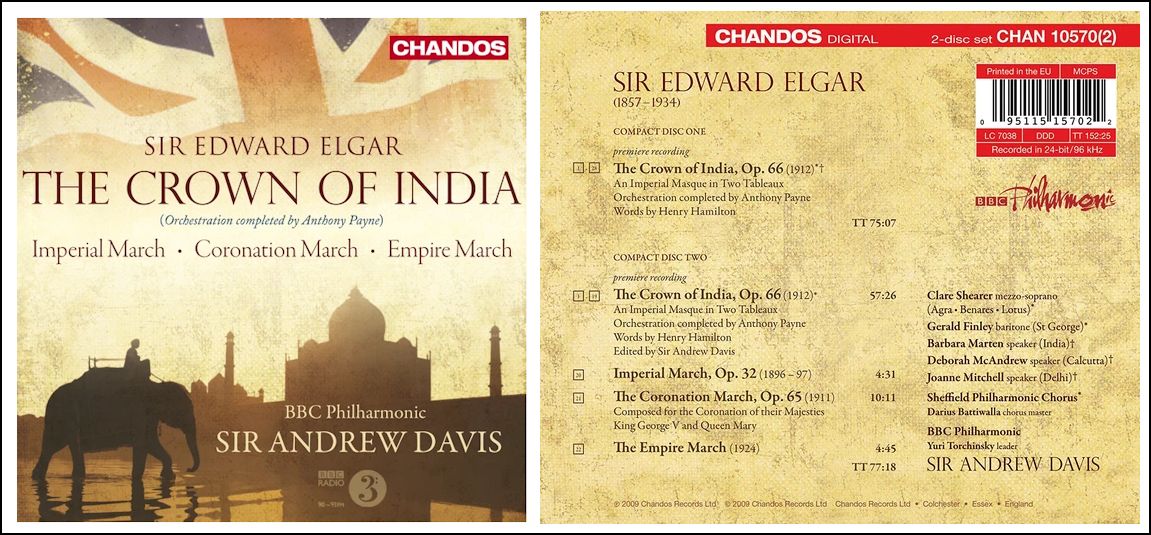
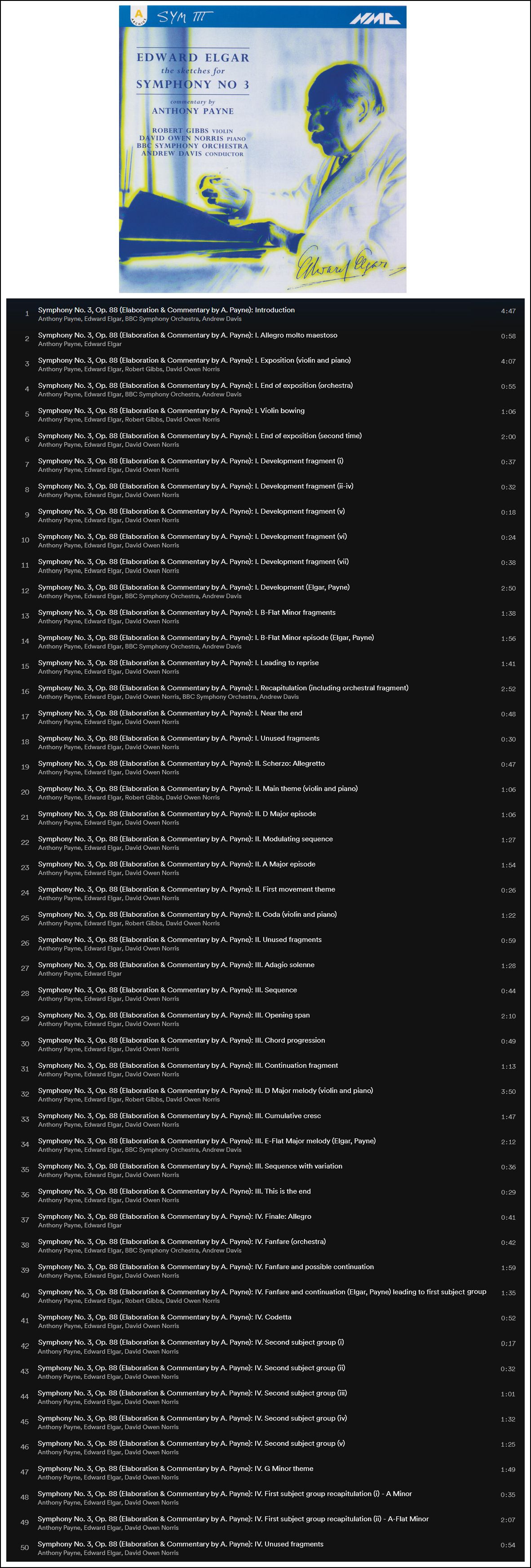
© 1999 Bruce Duffie
This conversation was recorded in Chicago on March 5, 1999. Portions were broadcast on WNIB five months later. This transcription was made in 2021, and posted on this website at that time. My thanks to British soprano Una Barry for her help in preparing this website presentation.
To see a full list (with links) of interviews which have been transcribed and posted on this website, click here.
Award - winning broadcaster Bruce Duffie was with WNIB, Classical 97 in Chicago from 1975 until its final moment as a classical station in February of 2001. His interviews have also appeared in various magazines and journals since 1980, and he now continues his broadcast series on WNUR-FM, as well as on Contemporary Classical Internet Radio.
You are invited to visit his website for more information about his work, including selected transcripts of other interviews, plus a full list of his guests. He would also like to call your attention to the photos and information about his grandfather, who was a pioneer in the automotive field more than a century ago. You may also send him E-Mail with comments, questions and suggestions.